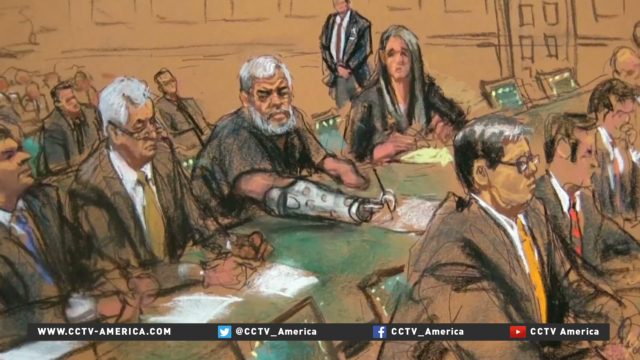A U.S. court has sentenced radical London preacher Abu Hamza al-Masri to life for his involvement in the 1998 hostage taking of Western tourists in Yemen in which four people died. His trial followed an eight-year extradition battle to move him from the U.K. to the United States. CCTV America’s Nick Harper reported this story from New York.

A key piece of evidence in his undoing was an interview one of the Yemeni hostages recorded with al-Masri two years after the ordeal. Mary Quin, a U.S. citizen who now lives in New Zealand, tracked him down and forced a confession from him.
Referring to that interview, U.S. Judge Katherine Forrest said al-Masri spoke to Quin “without any remorse”.
The interview surprised some for its candor and self-incrimination. But the prosecution argued that it simply showed a man who truly believed in his cause.
“He’s proud of what he does. He doesn’t feel guilty about it, just as the Nazi soldiers and the Nazi leadership in World War II were not guilty, they didn’t feel they did anything wrong,” Harold Takooshian, professor of psychology at Fordham University said.
“His behavior is really that there’s a culture of violence and he subscribes to that culture,” Takooshian added.
Al-Masri’s defense team argued that as a double amputee, he needed specialized medical care and should be jailed in a medical facility instead of a maximum security prison.
The judge’s refusal to recommend that sentence broke promises made to him when he was extradited from the U.K. in 2012, al-Masri’s defense team said.
“I think those issues were issues that were very important to the extradition. The government made certain representations and now they are trying to avoid those representations. I think it’s the wrong thing to do,” Sam Schmidt, al-Masri’s attorney said.
 CGTN America
CGTN America
